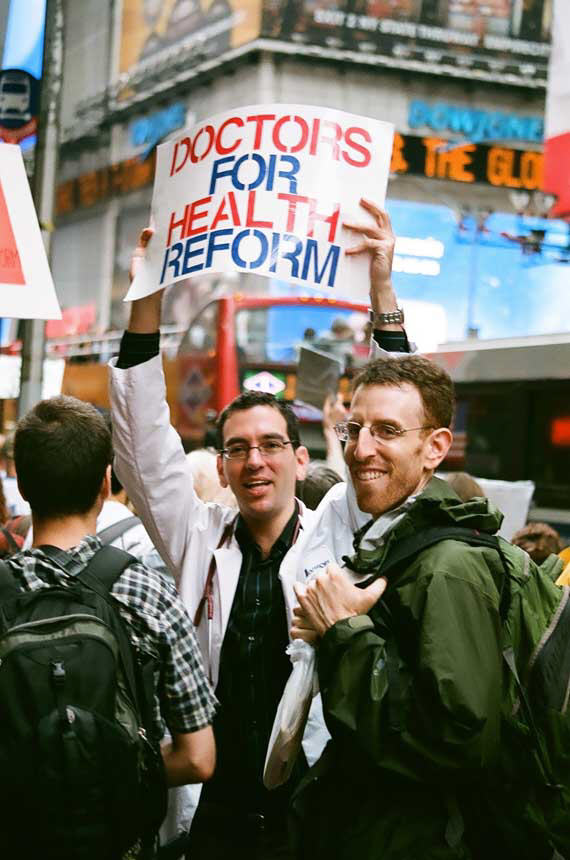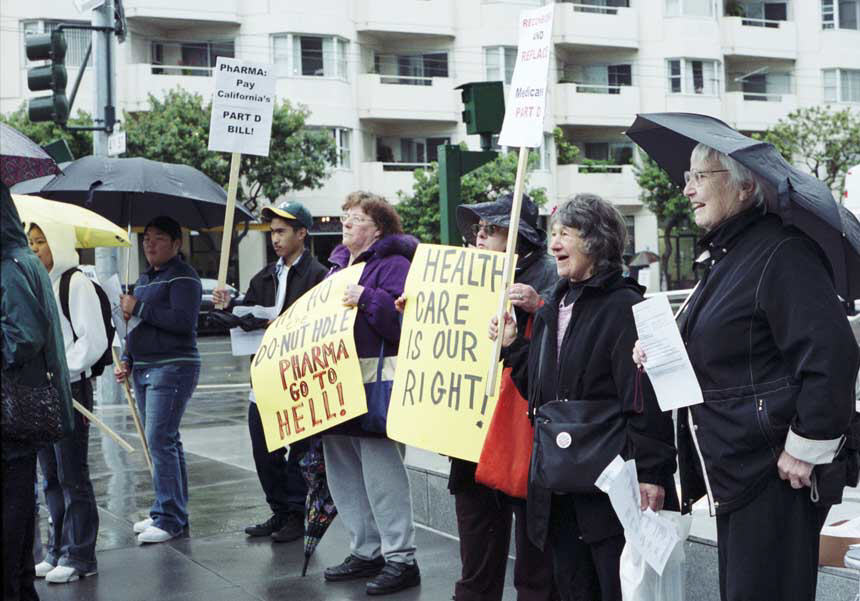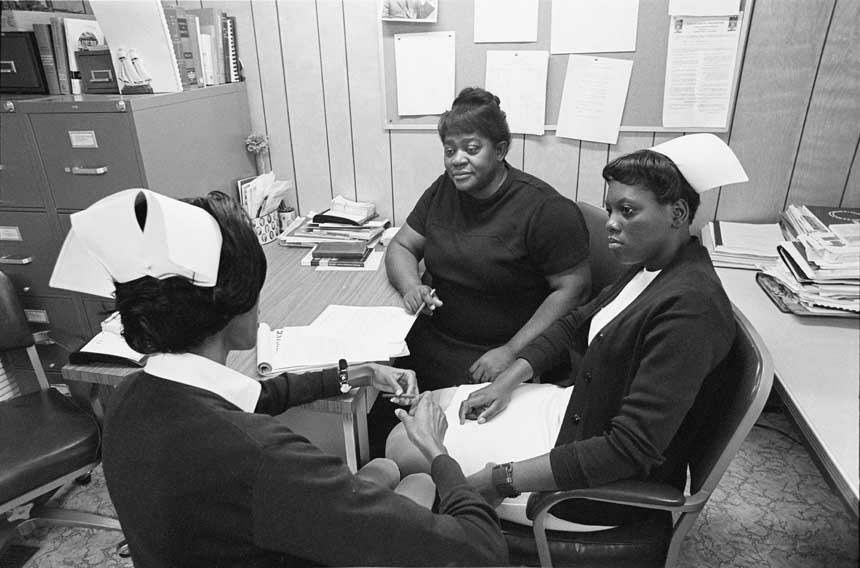Health care reform has been a contentious political issue in the United States for more than a hundred years. Even after the passage of the Affordable Care Act in 2010, which expanded access to health insurance coverage for millions of people, Americans continue to disagree on whether and how to make quality health care available to all.
From the beginning of the 20th century to today, citizens have made their voices heard in these debates. Health care reform is usually associated with presidents and national leaders, but this exhibition tells the lesser-known story of how movements of ordinary people helped shape the changing American health care system.
Physicians rally in support of health reform, New York City, August 29, 2009
Courtesy Thomas Altfather Good
For most of the 20th century, the American Medical Association was a powerful and successful opponent of government health care reform, especially proposals for national health insurance. However, not all physicians opposed reforms, and some created their own reform organizations. Many doctors and medical students also worked closely with citizen groups to expand access to quality health care.
Senior citizens and supporters protesting high pharmaceutical costs at a Gray Panthers of San Francisco demonstration, 2006
Courtesy Patricia Jackson
Sometimes calling themselves patients, sometimes consumers, people in need of medical care have formed the backbone of grassroots health care activism in the United States.
Nurses meeting at the Delta Health Center, a community-controlled clinic in Mound Bayou, MS, 1968
Courtesy Daniel Bernstein/Jack Geiger
Minority and low-income Americans have organized to bring quality health care to their communities for over a century. Responding to neglect from government and private providers, community members have created their own public health campaigns, hospitals, clinics, and health centers.





